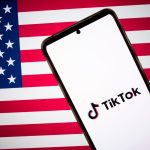In a bitterly polarized era, China bashing is still bipartisan. President Donald Trump opens with tariffs, the Democrats call and raise, and then it’s Trump’s turn to up the ante again. The People’s Republic is now almost universally seen both as an economic rival that has ravaged the American economy and as a military rival that threatens American allies and world peace.
It is certainly reasonable to be suspicious of the Chinese Communist Party. Its recent trajectory is dispiriting: Where many of us hoped economic liberalization would produce political liberalization, an authoritarian backlash instead started clamping down on both free markets and free speech. The longstanding repression of ethnic minorities and political dissenters was industrialized and digitized.
And while previous Chinese leaders preferred to set aside contested geopolitical issues and leave them to later and wiser generations, today’s wolf warriors have increased military pressure against their neighbors, threatening Taiwan with invasion and other countries with trade coercion.
All the worries about Chinese President Xi Jinping’s despotism were enhanced when he maintained his alliance with Vladimir Putin after the Russian leader’s brutal 2022 attack on Ukraine. Even for a card-carrying free trader, it may now seem reasonable to screen Chinese investments, to keep the most sensitive technologies out of their hands, and to make sure we aren’t too dependent on them for any single resource.
But as a newly emboldened Trump assembles a Cabinet of national security hawks and economic nationalists, we seem to be heading for much more than that. Several of his choices to staff his administration have agitated for decoupling the American and Chinese economies and imposing harsh technology restrictions. And that would not make the situations that worry people about China better. It would make them much, much worse.
***
The first casualty of any trade war is the economy. Many Americans have the impression that only Beijing benefits from U.S.-China trade. But a one percentage point increase in imports from China caused a 1.9 percent decline in U.S. consumer prices, saving a representative American household roughly $1,500 a year, according to one estimate by London School of Economics professor Xavier Jaravel and Federal Reserve Board of Governors economist Erick Sager.
The effect was largest in product categories more popular among low-income consumers, such as apparel and consumer electronics. After winning an election largely because of discontent over inflation, Trump seems ready to start his second administration with tariffs that would raise consumer prices.
And prices are not just about prices. When consumers have more purchasing power, they use it to buy goods and services in other, more high-productive sectors. Higher tariffs would lead to lost jobs, and inputs would become more expensive for American producers.
Some research suggests that competition from international trade can lead to better wages in new roles for U.S. workers. A 2017 paper by the economist Ildikó Magyari estimates that the American companies most exposed to Chinese imports expanded employment 2 percent more per year than other companies did. Some of these were manufacturing jobs—with higher wages, because they are in the stages of production where workers add more value—and some were complementary service jobs, in such areas as engineering, design, research and development, and marketing.
Apple offers a fascinating example. Trump has often complained that China is the biggest beneficiary of the iPhone, just because the devices are often assembled there. But when researchers Kenneth L. Kraemer, Greg Linden, and Jason Dedrick disassembled an iPhone 7 in 2018, they found that almost all of its value was captured by Western producers of parts, including hundreds of thousands of American researchers, designers, programmers, salespeople, marketers, retailers, and warehouse workers. China just got 1.3 percent of the price paid for an iPhone, and that offshoring made it possible to move U.S. labor to the more value-added parts of the supply chain.
Furthermore, more than a million American jobs depend directly on exports to Chinese consumers. About 0.5 percent of the U.S. work force would lose their jobs if the U.S. lost access to its third-largest goods exporting market.
In other words: If Trump passes the tariffs he’s been promising, the GOP’s newfound identity as the party of the working class would be just a brief stopover on the way to becoming the party of the unemployed class. The economy would eventually find work for most who lost their jobs in this decoupling shock, but those jobs would on average be less productive and pay less, since they would be in sectors where America has less of a comparative advantage.
Still more opportunities would be lost in the future, since protectionism reduces competition and innovation. If the United States shuts its doors to the best manufacturers of, say, electric cars, that may save some jobs in the short term, but it will turn the U.S. into a fenced-off auto show for more expensive and less efficient vehicles. American consumers will have to pay much more, and foreign consumers will be much less interested.
The one obvious benefit of severed trade links—though it could also be accomplished with more targeted interventions—is that America would not risk being dependent on particular resources or goods from China, removing potential Chinese choke points for such items as batteries, chemicals, or rare earth minerals.
On the other hand, the United States would also lose a huge reservoir of production capacity that could have been mobilized to help in an unforeseen crisis. In the first two months of 2020, China imported large quantities of personal protective equipment to deal with the COVID-19 pandemic, from the U.S. and from other countries. Then COVID came to the U.S. while China got a respite and could scale up production. From March through May 2020, China exported 70 billion face masks—more than three times total global production in 2019—thereby giving the U.S. time to redirect our local production.
Safety in supply chains is, after all, created by multiplying options—by having eggs in many baskets, not just ones marked “friends” or “allies.”
***
Would decoupling hurt China more than it would hurt the United States? Most likely. But its response would not be to lie down and give up on technological development. It would double down on its strategy of becoming independent of Western technologies.
This pattern has been discernible since the U.S. shut China out of its satellite technology supply chain in the 1990s, prompting China to develop its own capabilities. There is a risk that the same thing is now happening with advanced semiconductors and semiconductor manufacturing equipment, and in other areas. Until now, Chinese smartphone makers have used foreign Android and Linux software. In November, Huawei released its first device with a Chinese-made operating system.
The chief lasting effect of many export controls was for American companies to lose revenue that could have let them spend more on research and innovation.
China’s most reliable ally in its struggle is American nativism. In 2009 Erdal Arıkan, a Turkish graduate of the California Institute of Technology and the Massachusetts Institute of Technology, solved theoretical problems that made the transition from 4G to the much faster 5G mobile internet possible. Since Arıkan did not receive a green card, he had to leave the United States and turned to China. Huawei used Arıkan’s work to become a world leader in 5G and now owns most patents related to his breakthrough.
A United States bent on decoupling from China risks pushing many more innovators and entrepreneurs to the Far East. On paper there are good reasons to stop the export of sensitive technologies to geopolitical rivals, but what good does it do to fence in a geopolitical rival if cutting-edge producers feel the need to join that rival behind the fence?
One German producer of lasers and chip toolmakers, Trumpf, has faced increased obstacles and costly delays after the U.S. government pushed Germany to restrict its exports to China. In response, Trumpf moved some of its 3D-laser-cutting production to China. Hagen Zimer, head of the company’s laser operations, said this might just be the beginning: “If I am further penalized with these restrictions and delays on exports to China, then we will just relocate to China,” he told the Financial Times in September.
This comes from a company in one of America’s closest allies, a country dependent on America’s security guarantees. Imagine how countries diplomatically closer to China will react if forced to choose between Beijing and Washington. Surveys of Southeast Asians by the Singapore-based ISEAS—Yusof Ishak Institute reveal that support for China has surged since the recent trade wars started. If the region were “forced to align itself with one of the strategic rivals,” the pollsters asked, “which should it choose?” In 2024, 50.5 percent of Southeast Asians surveyed picked China over the U.S.—up from 38.9 percent in 2023.
As former Indonesian Trade Minister Mari Pangestu said in October: “On the ground, two supply chains are developing. We choose both.” America is increasingly depriving them of that option.
***
Maybe these hits to U.S. prosperity, employment, and safety would be worth it if they reduced the risk that China will turn in an increasingly totalitarian and threatening direction. But the opposite is more likely.
To understand why, consider that China is currently in decline. Its astonishing growth since the early 1980s was the result of economic liberalization at home combined with a hungry world market abroad. That incredible potential for growth is now gone.
Productivity and growth have been declining in China for a long time, and the data on the economy and employment are so unpleasant that the government hides it in shame. More than half of all indicators published by Chinese statistics bureaus have been discontinued in recent years. The economy is suffering from bad debts, a huge real estate bubble, and a retreat from free markets, all coming at the same moment that catch-up growth is over and the country is running out of labor—by the middle of this century, China will have lost more than 200 million working-age people.
China’s GDP per capita is so low now that when it’s adjusted for purchasing power, it’s similar to the numbers for Gabon and the Dominican Republic. That is why Xi Jinping, who came to office envisioning a “Chinese Dream,” now urges young citizens to “eat bitterness.”
The country desperately needs a new engine of growth, and that can come only from innovation and disruption. But that is exactly what control freaks are afraid of, and Xi has systematically cracked down on independent entrepreneurs. The very authoritarianism that makes China so scary is what stops it from becoming the leader of the world.
We should welcome the faltering of the world’s mightiest autocracy. But it matters how that faltering happens, and what Beijing perceives as its causes. The China hawks who think that this might be the moment to push China into a corner, or over a cliff, should be careful what they wish for.
When economies slow, governments have a harder time keeping the populace satisfied. That often leads them to crack down on dissent. China is now doing the bare minimum to fit into the global order, and it has an awful human rights and civil liberties record at home. There is a great risk that a declining, more isolated, and less interdependent China could be much worse on both fronts.
What if China’s leaders see an economic collapse as something imposed by a hostile West rather than as the consequences of its own misguided policies? What would a party that has built its legitimacy on raising living standards rather than ideology do if it feared losing power? What if it had already paid the price, in terms of losing economic and technological exchange, that would otherwise hold it back from lashing out?
***
The risk of a war between the U.S. and China is often analyzed through the prism of the Thucydides Trap, the political scientist Graham Allison’s word for the tension when a rising power (like Athens, in Thucydides’ history of the Peloponnesian War) is seen as a threat to an established one (Sparta).
But this mostly explains war from the perspective of an old hegemon. Why would an upcoming revisionist power ever start a war? Why not wait until you have risen further? In this case, the trap that “time is running out” is more relevant. History has many examples of powers that had been rising for a while but then suddenly found their paths forward blocked. That changes the calculus.
If a rising power can see a future in which it prospers and is allowed to take its place in the established world order—or become so dominant that it can easily replace that order—it makes sense to hide its strengths and bide its time, as Deng Xiaoping encouraged the Chinese to do. But delay is defeat if further rapid growth seems impossible: if it suffers demographic decline, or if geopolitical rivals decide to starve it of resources or markets. Then the country must either accept that it will never realize its grand ambitions, or lash out.
This is what the political scientists Hal Brands and Michael Beckley call “the danger zone.” In such moments, a revisionist power often acts aggressively, to seize what it can before it is too late. The most dangerous trajectory in international politics, they conclude, is a long rise followed by the prospect of a sharp decline.
One example is Germany before World War I. After several successful decades, Germany feared losing ground to a rapidly growing Russia, and its rivals were building militaries that would soon be superior. Meanwhile, Britain and France were restricting German access to oil and iron ore. And so Helmuth von Moltke, chief of the German Great General Staff, declared in 1912 that “war is unavoidable and the sooner the better.”
Japan’s authoritarianism and imperialist ambitions grew in the late 1920s and the 1930s as its growth faltered and protectionism shut its overseas markets. By 1941, a rapidly rearming United States imposed an oil embargo that threatened Japanese expansion. Time was quickly running out for Japan, but it still had a temporary advantage. Prime Minister Hideki Tojo concluded they had no choice but to “close one’s eyes and jump”—and on December 7, 1941, Japan struck.
In the same vein, Putin started his wars of conquest against Georgia and then Ukraine amid the global financial crisis and then the COVID-19 pandemic recession.
Chinese leaders might think they are approaching such a now-or-never moment, with economic and demographic decline setting in just as its rivals are trying to rein China in on all sides. At 71, Xi might very well feel it on a personal level.
Down the road, China might not have sufficient interest, capacity, or manpower to threaten the United States. But right now we are in a danger zone, and it has to be handled with great care. What is holding Xi back from an invasion of Taiwan? The risk of failure, of course, which would end his rein in ignominy. But if the Communist Party feels that it is losing its grip on its people at a time of economic turmoil, it might think it’s worth a huge risk by starting a war that could inflame nationalist passions—especially if the Chinese people believe other nations have ganged up on them to wreck their economy.
Another thing holding China back is its stake in the remnants of an open world economy. It is still heavily dependent on global markets and the international financial system. The fact that Xi has not gone all in with arms and resources to Putin’s war reveals how much China treasures its economic relationship with the West. Secondary sanctions would be very harmful.
Similarly, Xi knows an invasion of Taiwan would result in an economic war with the West that would cause China tremendous pain. But what if China had already been deprived of those lucrative markets and had already lost access to investments and technologies it needs? Then it would already have paid the price that would otherwise deter it from going rogue. It would have had the time to prepare itself, by protecting assets, hoarding resources and making itself technologically self-sufficient. The Chinese Communist Party would be freer to follow its ambitions and fears.
According to the international relations scholar Dale Copeland, countries that expect the global economy to remain open usually prefer to find a peaceful place within it—but change their behavior when there is a risk that it will slam shut. When ports and sea lanes start closing, countries fear losing access to essential resources and markets. And then they feel a greater incentive to seize them by force.
Right now, both American and Chinese hardliners seem to be working hard to reach such a perilous stage. What was it Sun Tzu once said? “He will win who knows when to fight and when not to fight.”
The post Cutting Off Trade Will Make the U.S. Poorer and China More Totalitarian appeared first on Reason.com.







